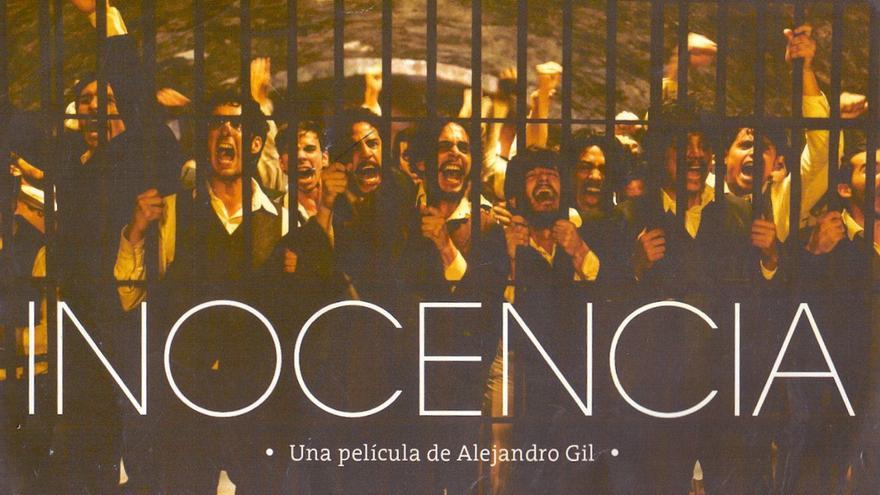
![]() 14ymedio, Reinaldo Escobar, Desde Aqui, Havana, 28 February 2019 — On the same day that the constitutional referendum was held, the busiest circuit of Havana cinemas announced the film “Innocence,” by the Cuban director Alejandro Gil. In the last edition of the Havana Film Festival, it received the award given by the public.
14ymedio, Reinaldo Escobar, Desde Aqui, Havana, 28 February 2019 — On the same day that the constitutional referendum was held, the busiest circuit of Havana cinemas announced the film “Innocence,” by the Cuban director Alejandro Gil. In the last edition of the Havana Film Festival, it received the award given by the public.
In those same movie theaters, 28 years ago, while the Fourth Congress of the Communist Party was getting underway in Santiago de Cuba, appearing on the marquees was the disturbing title “Last Images of the Shipwreck,” written and directed by Eliseo Subiela, which received the Gran Coral Award in 1999.
Superstition and symbolism aside, the titles of these films substitutes in the opposition’s imagination for the absence of protest posters which have been gagged by censorship. A subjective reading of an (unintended) subliminal message.
The capricious hand of chance warned in 1991 of the presumed collapse that awaited us in the Special Period and now, this 24th of February 2019, it stressed that peculiarity of human behavior that justifies the commission of errors and facilitates the work of the victimizers.
Shortly after exercising his right to vote, Mr. Miguel Diaz-Canel, president of the Councils of State and of Ministers, offered statements to the press. When asked what he thought the results of the referendum would be, he replied: “I am optimistic, more than optimistic I am sure (…) People cannot be so hypocritical, so many good people cannot be wrong…”
He could have said that people cannot be so ignorant, or so right-wing or so blind. But he chose hypocrisy because that was his hidden fear; that all those public demonstrations of unrestricted support that he had observed in his travels around the country were the result of the double standard that feeds on opportunism, of the fakery that engenders fear.
Looking at the results of the referendum, the official ones, because there are no others, this humble editor is surprised by how many people can be so hypocritical and stick to Yes while wanting to say No. Because one thing is known, there are many who pretend to agree with “this” but, with the exception of the odd infiltrator, among the unhappy no one feigns his political position. All hypocrites are on the same side.
If anyone needs an example of this categorical affirmation it is enough to remember that in the referendum that put the 1976 Constitution into effect only a little more than 50,000 voters marked No on their ballot, and four years later, during the stampede of the Mariel Boatlift, more than 120,000 Cubans decided to physically abandon the national project proclaimed by that Constitution. It is true that in that exodus there were minors, too young to have voted, as it is also true that not all those who refused to approve the Constitution were among those who climbed aboard a ship.
A pending issue of social research, a piece of data that may never be known with certainty, is how many hypocrites voted Yes in February of 1976, especially since the 1980 Mariel exodus was followed by the 1994 rafters crisis, and more recently by the migratory flood of Cubans who crossed Central America heading north.
Academics find it difficult when they introduce the variable that, in addition to faking it, there have been conversions, and in that case it must be noted that these only occur in one direction, the one that passes from a belief in utopia to disappointment.
Among the more than 700,000 who voted No and the million who abstained, surely there are no hypocrites, although there must be many converts. It would be unfair and also inaccurate to believe that the more than 6,800,000 who ratified the new Constitution are a party of fakers.
There remains innocence, mixing the folly of those who do not want their arms twisted with the naivete of those who lack information or opinions other than those that come from official sources. Those who never heard an argument to reject the new Constitution suffer from a serious political stroke. They are innocent.
Hopefully, the story will not be repeated, hopefully there will not be another migratory hemorrhage as a result of the new “revolutionary consolidation” expressed in the institutionalization of the dictatorship.
Hopefully we do not have to look deeply for the subliminal messages hinted at by the films that are being announced in the first-run theaters.
___________________________
The 14ymedio team is committed to serious journalism that reflects the reality of deep Cuba. Thank you for joining us on this long road. We invite you to continue supporting us, but this time by becoming a member of 14ymedio. Together we can continue to transform journalism in Cuba.
